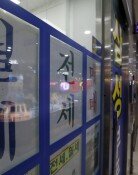One Should not Distort the Truth Commissions Decision for Political Reasons
One Should not Distort the Truth Commissions Decision for Political Reasons
Posted July. 30, 2004 21:42,
On July 30, President Roh Moo-hyun commented on the Presidential Truth Commission on Suspicious Deaths decision to recognize former North Korean spies and partisan guerrillas serving time as long-term political prisoners for refusing to convert as having contributed to the democratic movement: In principal, whether that was a democratic movement or not, the important thing is to investigate human rights as well as citizenship violations by the wrongful use of authority.
President Roh, being briefed at Cheong Wa Dae by the second-term Truth Commission whose official activities expired in late June, said, The current controversy is rather a state of disorder caused by the provision to subject only democratic activities to investigation, and it needs amendments in the future.
The Truth Commission is under the command of the president, but its activities are completely independent, yet in some aspects, people attack the commission in order to attack the president, said President Roh. It is no longer an era where the president controls everything, but it seems that the perception towards presidential power still has remnants of the Yushin Era and the Fifth Republic.
President Roh added, The Truth Commission is an institution created by the president with the consent of the National Assembly, and legally, its activities are independent, hence it does not fit the rules of law that the president interferes with nor directs the Commission.
President Rohs words imply that the question raised by the opposition party, questioning the national identity in regard to the activities of the Truth Commission, is all but a political offensive, hence it is predicted that the controversy surrounding the commission will spread.
On the future activities of the Commission, President Roh first premised, The National Assembly will reach an appropriate decision, and suggested that rather than having a separate, third Truth Commission, he proposed for a comprehensive past history truth-seeking institution to also deal with this issue: The commission should not deal with individual pieces of the past history, but rather, a national-level enterprise to comprehensively deal with problems that were the point of contention in history is necessary.
Opposition Grand National Party (GNP) Floor Leader Kim Duk-ryong held a press conference on the same day in the National Assembly and said, The Korean people and the opposition party have had strong doubts that the series of actions committed by the Truth Commission, which shook the national foundations into chaos, were in fact conducted systematically, but instead of solving the suspicions, the president only fostered them. The GNP will summon the National Assembly Government Administration and Home Affairs Judiciary Committee and other related committees and will thoroughly inquire the actual facts. On the other hand, the Truth Commission prepared a proposal to the government including the elimination on statutory limitations on crimes against human rights, and the abolishment of military courts in peace times and presented them to President Roh on the morning of July 30 at Cheong Wa Dae.
The commission also reported on the activities in finding the facts in 44 cases of suspicious deaths, but controversial and sensitive issues such as the recommendation of sending long-term prisoners refusing to convert to North Korea were not included in the report.
Jung-Hun Kim Yeon-Wook Jung jnghn@donga.com jyw11@donga.com







